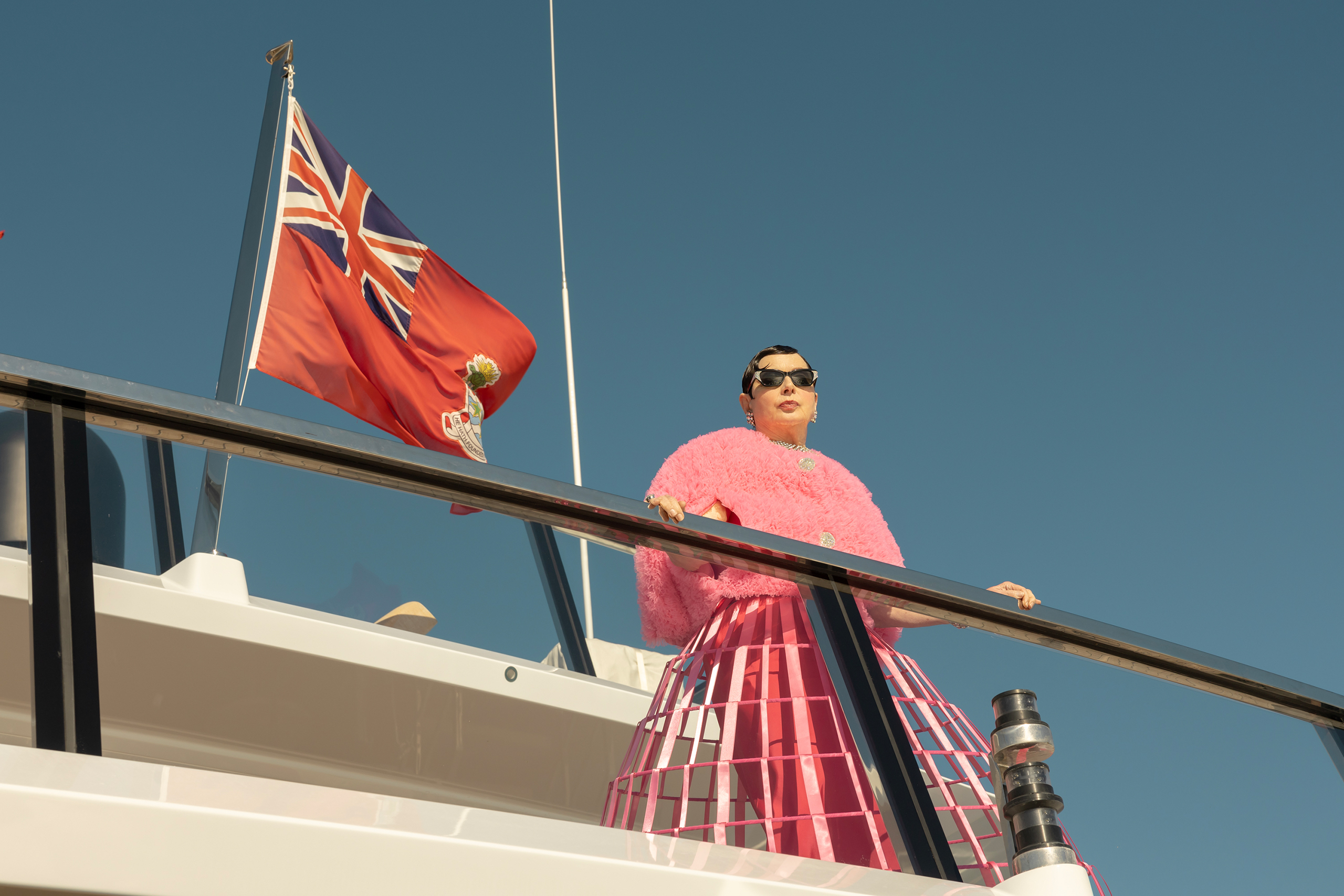I don’t know who needs to hear this, but: you don’t have to sell your old clothes. Sure, yes, I know someone you were talking to on the bus said she got £90 for her daughter’s coat on Depop, and there was a mum in the Sun the other day who makes five grand a month selling charity shop clothes on Vinted (“A tactic that Beccy swears by is getting the kids involved. ‘They can help take photos,’ she said. ‘It’s a fun way to teach entrepreneurial skills and they can also help spot trendy items’”), and your friends are doing it and your friend’s daughters are doing it and you have a permanent humming feeling in your chest and hands when you open your wardrobe and see again the Ikea bag of once-loved clothes spilling out on to the floor and reaching for you, but listen, there’s another way.
We will pause here for a brief recent history of selling shit online, beginning, perhaps, with that picture of the mountain of clothes dumped in the Atacama desert. A series of events – including crushing evidence of the environmental impact of fast fashion, combined with a pandemic that meant not only were we engaging with the world largely through our screens, but doing so in homes that revealed themselves to be uncomfortably stuffed with things we didn’t need – led to online sites like Depop and Vinted exploding.
Marie Kondo had recently introduced us to the concept of “decluttering”, of weighing our belongings in one shaky hand and asking if they sparked joy, so we already met these dusty piles of clothes with a certain guilt, the knowledge that by hoarding them rather than releasing them back into the wild we were preventing ourselves from moving on to a better life, from shedding our past. And, of course, we were skint. Which is not nothing. The “cost of living” meant not only was it harder to justify buying new clothes, but the idea we might be able to earn something back on our old ones became incredibly appealing.
These unwanted things, already complicated by the space they take up, are now infested, mothlike, with a new kind of pressure
These unwanted things, already complicated by the space they take up, are now infested, mothlike, with a new kind of pressure
These were not just T-shirts, after all, these were trophies of youth, these were memories in washed cotton. They might not fit us any more due to the cruel spread of time, but they remained valuable in a thousand ways, too valuable to throw away. Instead, having accepted they must go, we laundered and ironed them and photographed them on a clean bedspread and uploaded them online for £4 each, all offers considered.
For some people, selling their old crap on eBay is a laugh. Fulfilling. Occasionally profitable. There is a sense of grand circularity, too, perhaps, the feeling that this is a game in which none of us lose. And fair enough, to them I say, crack on. I’m buying what they’re selling after all, with a new old shirt due to arrive on my doormat between three and five. But for the rest of us these unwanted things, already complicated simply by the space they take up, are now infested, mothlike, with a new kind of pressure. While the ethical and professional thing to do five years ago would have been to donate them to charities or friends, now the expectation is that we will sell them online and wait for them to make us our fortune.
That story about the five-grand mum in the Sun joins a similar feature at least once a week, another mum making her fortune by selling old tat (“My ‘no-hands’ tip will help you make sales!”), but increasingly they read to me as propaganda, as a distraction from the maternity discrimination that birthed the “mumpreneur”. I have no doubt that given the choice, the majority of these Vinted mums would prefer not to be spending their afternoons flipping purchases from charity shops, or bargaining with strangers over their sons’ football shorts, but instead appreciate flexible work and a living wage. The image of an entrepreneurial mum starting a secondhand-clothes business says more about crippling childcare costs and inhospitable workplace cultures than it does about decluttering or sustainability or opportunity. It’s low-paid and insecure work that regularly brings out the worst in us – on Vinted, 22% of users reported having been scammed; on Depop, it was 57%.
And beyond the weird relationship it cultivates between us and online strangers, it cultivates a similarly odd relationship between us and the things we own. We now expect more from them than they originally promised – isn’t it enough that these shoes walked us through two years of our life? Now must they earn back their keep?
It’s having an impact – Barnardo’s has seen profits at its 600 charity shops fall by 70% in five years and Scope is preparing to shut 77 of its shops after running up a £2.2m loss in two years. For the five biggest charity shop operators, profits have slumped by 40%, with the Charity Retail Association explaining that donors are setting aside “quality” items to sell online. Last week, in contrast, Vinted reported its net profit had grown by 330%.
Related articles:
It’s tricky. It is. It’s increasingly difficult to know how to shop and how to navigate the cluttering stuff of life, but there is an answer beyond the apps. Unless truly desperate, you don’t need to make a business from our cast-offs. Instead, you can thank your clothes for their tireless service and relearn the simple art of saying goodbye.
And another thing… Stories, series and snacks
A tale of two cities
Newsletters
Choose the newsletters you want to receive
View more
For information about how The Observer protects your data, read our Privacy Policy
Lena Dunham has written a wise little essay in the New Yorker about saying goodbye to New York. ‘In London, years passed like days, which is how I ended up, five years on, realising London is my home now, so much so that I call seltzer “sparkling water” and settle for bagels that taste like caulk.’
One to watch
I absolutely adored Consider Yourself Kissed by Jessica Stanley, a sad and witty romance between Coralie, a young Australian copywriter, and Adam, a single dad, played out over an uneasy decade in British politics. It’s a grown-up romcom; and it’s going to be massive.
Laugh out loud
I love Hacks with such a raw passion it might be my favourite TV show of the last decade. In the new season (streaming now), comedy icon Deborah Vance (Jean Smart) and young head writer Ava Daniels (Hannah Einbinder) hate each other’s guts, and yet are determined to make their late-night show a success. ‘She just called you the C-word,’ their manager tells Ava. ‘And not in a cool, RuPaul way!’
Might be hooked
Big news in the too-much-sugar-gives-you-headaches-but-screw-it-it’s-worth-it-community: Party Rings are now available in the shape of Under the Sea fish shapes. The first deviation from the ring in 42 years!
Photograph by Getty Images



